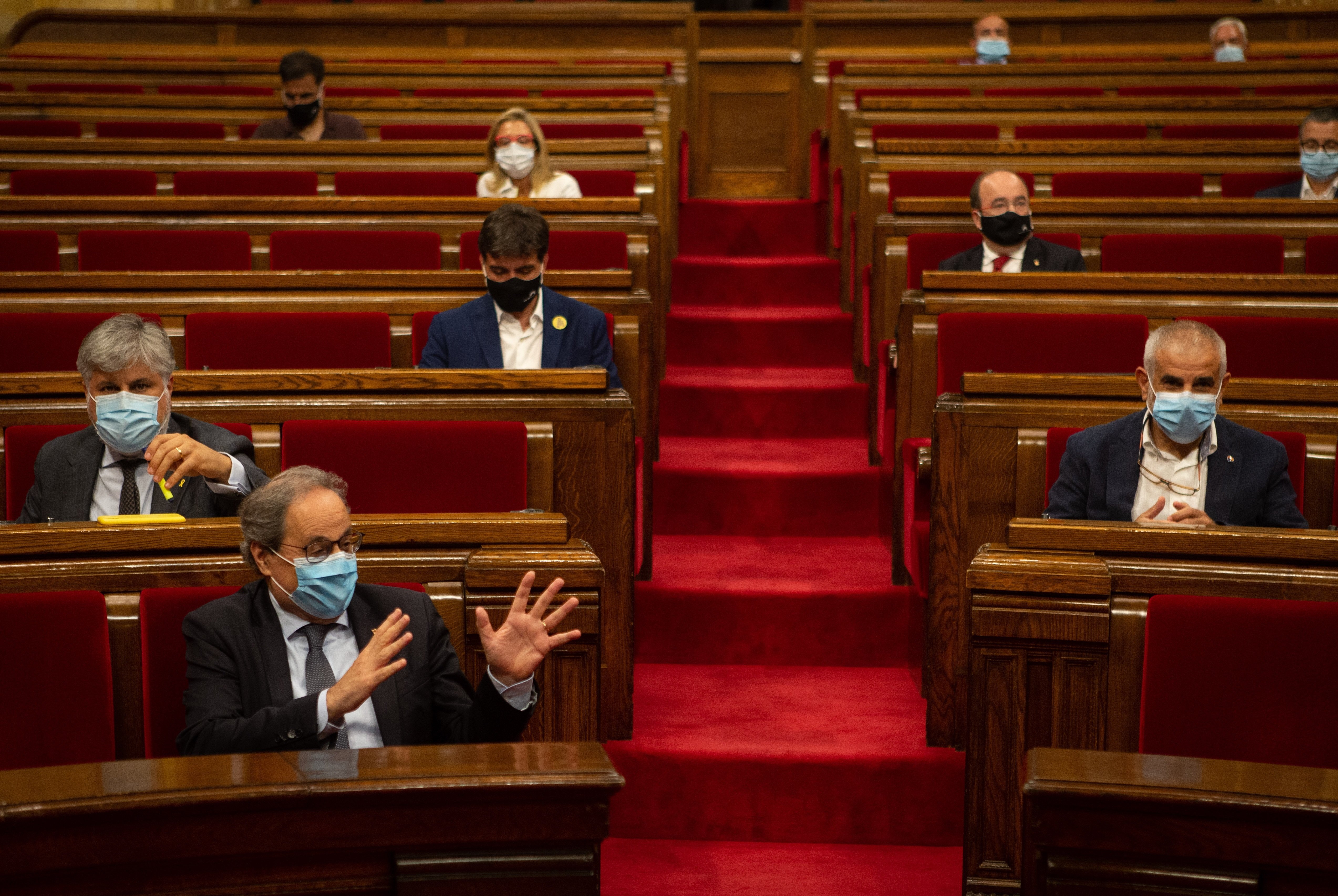The Catalan Parliament has this Friday night passed a joint resolution by the three pro-independence parties Junts, ERC and the CUP declaring that "Catalonia is republican", and as such "it does not recognize or want to have any king". At the same time the text proclaims that the alternative can only be a Catalan Republic, due to the "unreformable" nature of the Spanish constitutional regime of 1978. But the resolution was passed with great controversy after it transpired that some officials warned that they would not publish parts of the text in the official Catalan parliamentary gazette, believing that they violated criteria set down by the Spanish Constitutional Court. Carlos Carrizosa of the opposition Ciudadanos party recalled this fact during the debate, but the speaker, Roger Torrent, indicated that the text of the resolution would nevertheless be voted as it stood.
The president of the Junts group, Albert Batet, was outraged by the possibility that what Parliament had voted might not be published in its official gazette, and called for the chamber to act against officials who refused to carry out the publication in the gazette, while recalling that "Parliament is sovereign." President Quim Torra expressed a similar view:
El ple del Parlament és sobirà. Cap funcionari no pot decidir si es publica o no una resolució votada pel Ple. Vaja, fins aquí podíem arribar. https://t.co/7xe0HRUxOw
— Quim Torra i Pla (@QuimTorraiPla) August 7, 2020
"The plenary session of Parliament is sovereign. No official can decide whether or not to publish a resolution voted by the plenary. To think that things could get this far," he tweeted.
The only such stand in the state
The torrid process of passing this resolution came at the end of the Catalan house's day-long parliamentary debate on the monarchy, following the flight to exile by former Spanish head of state Juan Carlos I.
The position of head-on opposition taken by the Catalan Parliament is the only such stand taken by any institution in the Spanish state in response to the political crisis opened by the departure of the king emeritus, carried out after prior meetings with the current king Felipe VI and the Spanish government.
In direct reference to this, the text passed by Parliament denounces the connivance of the powers of the state in the "consensual flight" of Juan Carlos I.
The resolution also states that the Spanish monarchy "is a continuation of the previous regime [the Franco dictatorship] and is inseparable from the person of king Juan Carlos." It also describes the "Bourbon lineage" as an "historical calamity".
Voting on the resolutions started late because opposition parties Cs and the PP asked the Parliamentary Bureau to refuse to accept the motions for resolutions against the monarchy. The pro-independence majority of the Bureau rejected this. The legal counsel to the Parliament then warned the Bureau that some points of the initiatives presented could contravene rulings made by Spain's Constitutional Court.
Civil servants' doubts
The doubts of the civil servants assisting Parliament are centred on two parts of the six-point resolution. The first of these asserts that the "unreformable" 1978 Spanish Constitution is a failure and has entered into its "definitive crisis". Due to the constitution's inability to be changed, says the text, it "shields the continuity of a criminal monarchy, a failed autonomous system, a democracy taken over by the judiciary, social policies that are annulled when they are approved by the Parliament of Catalonia and legislation that punishes the exercising of fundamental rights."
The following section, on the Catalan Republic, is also controversial in the eyes of some parliamentary civil servants. It declares that the resolution "ratifies" "the will of the people of Catalonia and this Parliament expressed on October 1st, October 10th and October 27th, 2017" - the dates of the independence referendum (1st) and the declaration of independence (10th and 27th). And what Catalans expressed on these dates, asserts the text, is that "the only way to overcome this monarchical regime is to constitute the Catalan Republic as a State, democratic and social, governed by the rule of law."
Consequently, states the resolution, the Catalan Parliament "urges civil society and the country's institutions to continue on the path and make decisive progress towards the goal of independence."
The full text in Catalan of the resolution is below.

